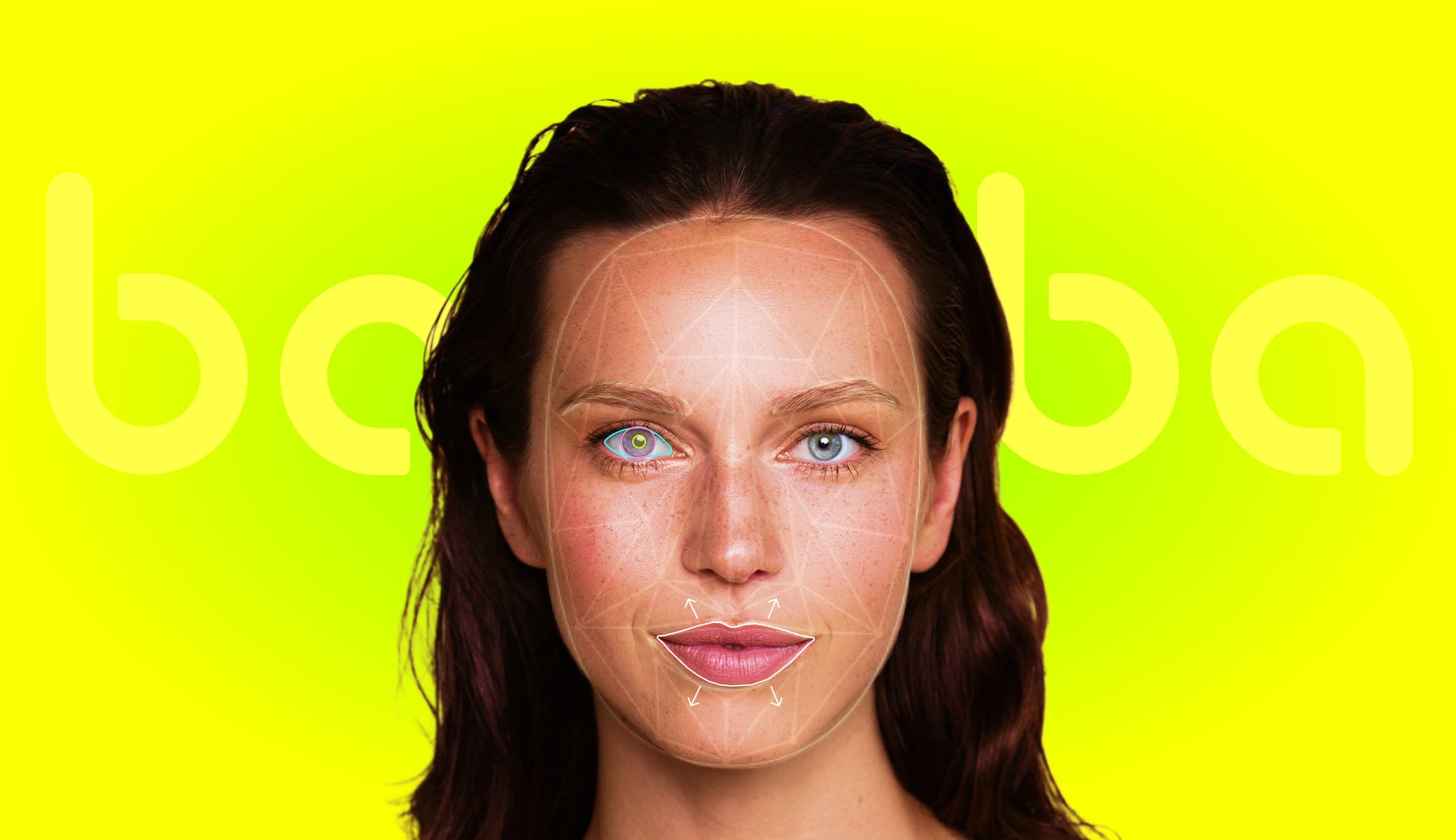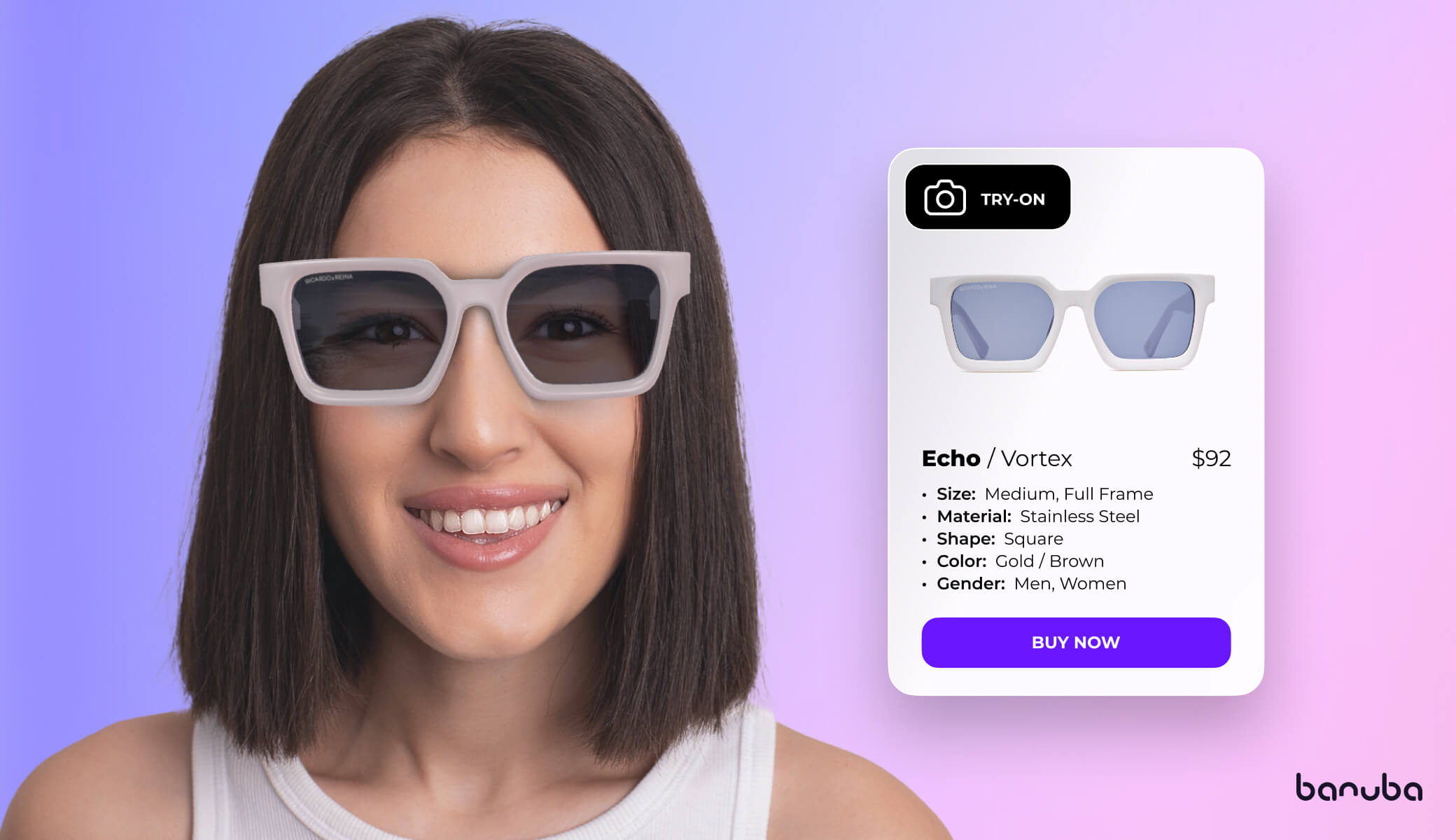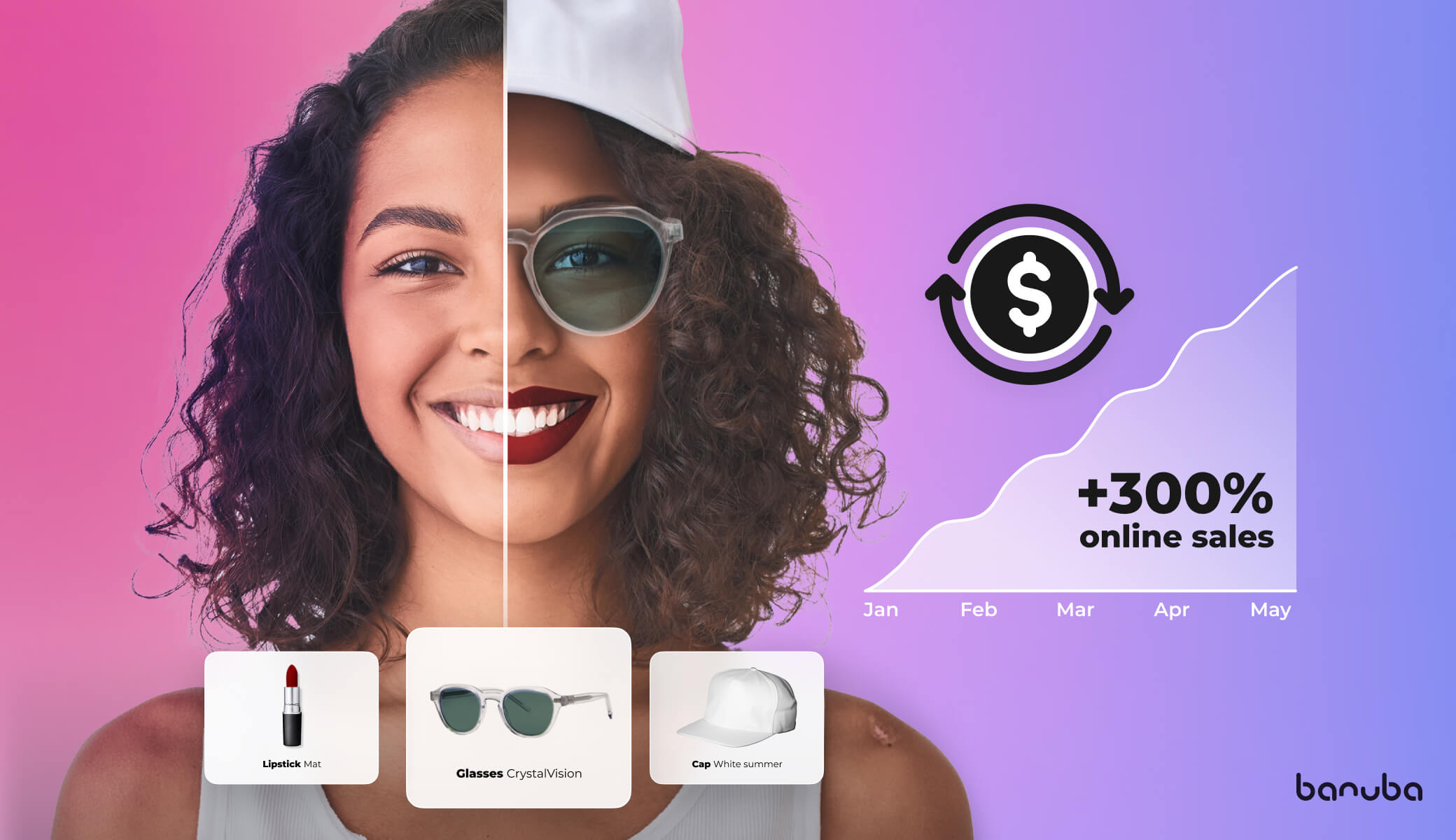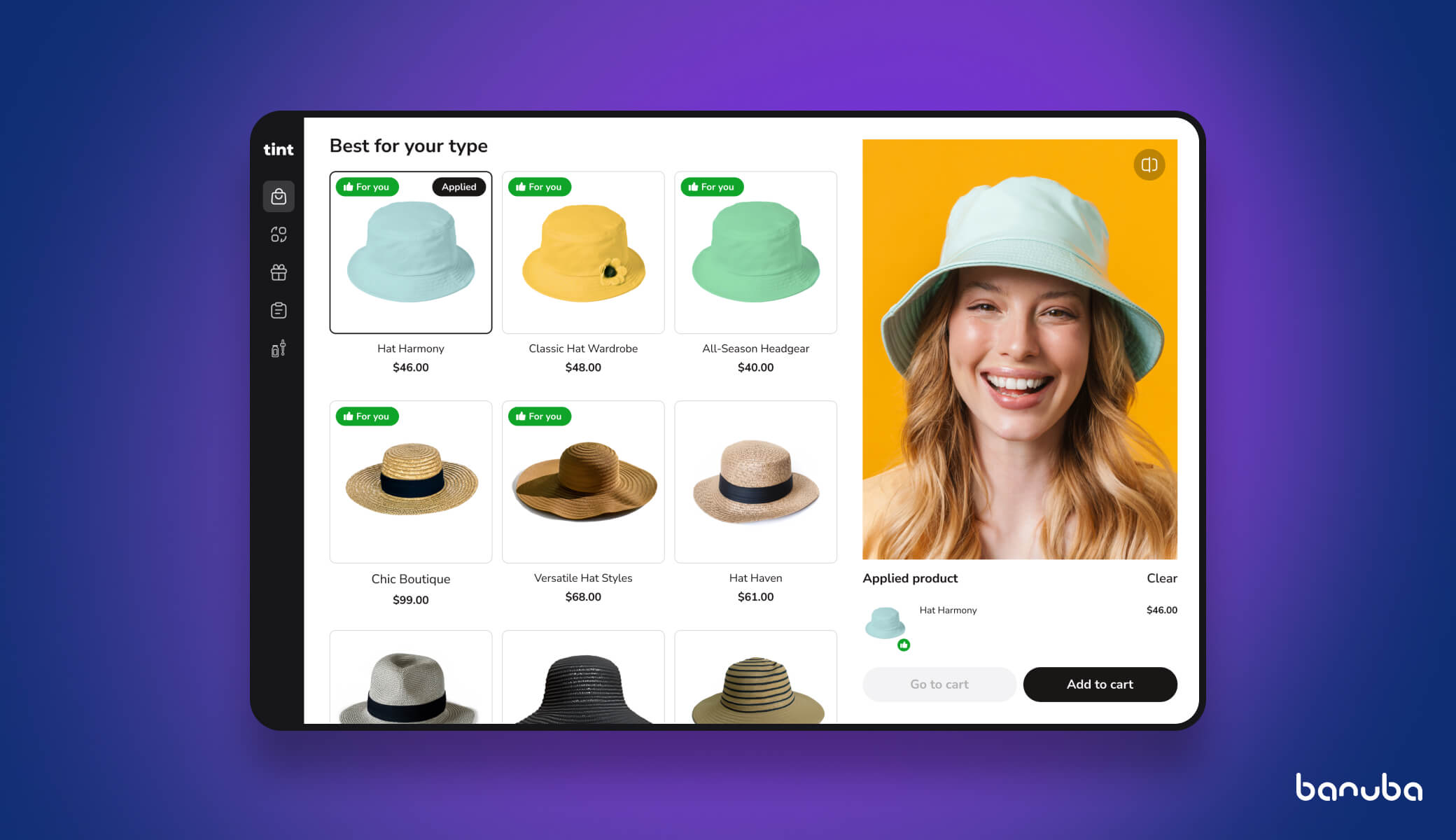Complete Guide to AI Skin Technology
The skincare industry, valued at $181.2 billion globally in 2023, according to Statista, is experiencing a profound transformation due to the integration of artificial intelligence. This comprehensive guide explores how AI revolutionizes the beauty industry by redefining skin care practices, addressing diverse skin concerns, and elevating skin health, taking the consumer experience and retail opportunities to the next level. From AI-driven skin analysis to smart skincare devices, we'll delve deeper into how this technology reshapes the skincare landscape, enabling companies and retailers to help consumers attain their desired beauty goals with unparalleled precision.


[navigation]
Overview of the Global Skincare Market
The Covid-19 pandemic caused tangible damage to the beauty market, with up to 20-30% revenue loss. While masks led to decreased demand for colored cosmetics, the lockdown motivated consumers to take more conscious and advanced care of themselves and their skin in everyday maintenance. An even skin tone won the fight over the filtered, foundation-covered imperfections. Thus, according to the L'oreal report alone, their skin care products sales grew by almost 19% in 2020, right in the middle of the lockdown chaos.
As consumers have become more proactive and pro-conscious regarding what products and ingredients they apply to their skin, the industry has had to adapt, reflecting the growing demand for effective solutions. Besides the active components and sustainability awareness, individuals become more mindful of their skin concerns and seek products and services that cater to their unique needs and skin conditions.
They no longer settle for generic skincare products but demand tailored solutions and a hyper-personalized approach. This shift is driven by heightened awareness of skin issues such as acne, dark spots, signs of aging, and overall skin health.
Historically, individuals relied on generic skincare regimens to address their concerns. They've been told that a radium-based cream would give their skin radiance, which it did, but there's a nuance. When the market was not so overfilled with multiple offers, and people had little or no access to information other than marketing pitches, the generic approach seemed practical and logical.
However, with an advance in social media, information sources, and self-awareness, consumers realized there's no magical pill to fit them all.
AI has disrupted this approach by offering personalized recommendations based on individual skin types, skin needs, and skin conditions. This transition from one-size-fits-all to customized skincare regimens represents a paradigm shift in the beauty industry. And while an average visit to a dermatologist costs around $221, leveraging AI-based solutions for finding a win-win skin care match seems more rational.
How the Skincare Industry Leverages Artificial Intelligence
Let's dive into the particularities of using AI technology in the skincare industry.
AI-Powered Skin Analysis Boosts Personalization
According to a recent survey by Accenture, 91% of consumers are more likely to shop and engage with brands providing a personalized approach. E-commerce businesses that implement personalization strategies report an average increase in sales of up to 40%.
These figures underscore the importance of personalization in capturing customer attention and fostering loyalty, ultimately leading to improved conversion rates and revenue growth. When it comes to skincare, personalization was only possible in offline stores or via a consultation with a dermatologist.
Personalized Skincare from TINT
Banuba's TINT reimagines the online shopping experience for skin care products. Its AI algorithms analyze many factors, including skin type, skin tone, imperfections, and more, to precisely determine an individual's unique skincare needs. Armed with this data, the system offers personalized skincare product recommendations tailored to address specific concerns.
For instance, its AI-powered skincare technology can suggest products enriched with ingredients like salicylic acid to treat acne, formulations designed to target dark spots, or retinol for fighting wrinkles, ultimately going beyond what traditional skincare brands can offer. This level of customization ensures beauty consumers receive specific skincare products ideally suited to their needs. The software can recommend single products and tailored sets where each item helps achieve beauty goals. According to Banuba's insights, interaction with the possibility of personalized skincare recommendations can boost the conversion rate by 300%.
In addition to smart analysis, augmented reality in TINT allows a sneak peek of both short-term and long-term benefits and estimated effects of using the product.
Users often feel blindfolded when shopping for skincare online. Like with makeup virtual try-on, TINT made it possible to try on solutions, get assistance, and basically replace a shop consultant.
Virtual Dermatology Consultations for Skin Concerns
AI extends its benefits to remote dermatology consultations, democratizing skincare expertise. Through AI, individuals can have virtual consultations with board-certified dermatologists from the comfort of their homes. This not only ensures timely advice but also eliminates geographical constraints, making specialized skincare guidance more accessible than ever before.
AI's role in skin diagnostics for dermatology research is expanding rapidly. It is being utilized for skin cancer detection, analyzing skin biopsies, and predicting disease progression. Additionally, AI is aiding researchers in developing new treatment options for various skin conditions, from acne to psoriasis, by analyzing vast amounts of clinical data and scientific research. The marriage of AI and dermatology promises breakthroughs that will further advance our understanding and treatment of various skin-related ailments.
Piction Health is the first virtual dermatology clinic to care for skin health with AI. Through the doctor-AI cooperation, the platform offers its customers a quick check-up with a tailored treatment plan and post-treatment support. A patient just needs to answer a couple of questions and send pictures of their individual skin concerns.
The algorithm will perform an AI skin analysis considering different factors, as its database accounts for over 500k case images. In cooperation with a dermatologist, patients can expect accurate results in two days. Once the issue is determined, a client will receive a prescribed treatment and personalized product recommendations.
AI in Skincare Brands
The skincare devices market is in bloom, with a compound annual growth rate of 12% until 2030. Implementing AI into skincare technology enables brands to stand out and outrun their competitors. Let's review the most renowned tools in skin care.
Smart Skin Care Devices
The integration of AI into beauty tools has ushered in a new era of skincare. These devices offer a myriad of benefits, ranging from enhanced cleansing to advanced skin analysis. For example, AI-infused cleansing brushes utilize technology to effectively remove dead skin and impurities. Smart mirrors equipped with skin analysis capabilities provide real-time feedback, enabling users to make informed decisions about their skincare routines.
Luna Fofo by Foreo incorporates advanced machine learning and personalization features to enhance users' skincare routines. Unlike conventional cleansing devices, Luna Fofo takes a scientific approach through the device scans by analyzing the skin's age, rating the user's skin condition on a scale of 100, and providing insights into hydration levels. This personalized data is then used to create a customized cleansing routine tailored specifically to the skin's needs. Users should perform this analysis every two weeks to monitor their progress. Once the routine is saved, using the device becomes as simple as turning it on and letting it do its work.
AI-powered face masks can soon replace the famous Korean sheet masks in personalized skincare. These led masks utilize blue and red light therapy devices to stimulate collagen production, combat the acne-causing bacteria, clear skin, and reduce the appearance of wrinkles. AI algorithms adjust the treatment based on the user's skin type, ensuring optimal results.
The Tri-Light +SABI AI by Skin Inc. offers a smart device with an AI-powered companion app. It takes the concept of skincare to the next level by recognizing that skin health is influenced by various factors beyond topical treatments. It acknowledges the impact of water intake, sleep patterns, stress levels, and physical activity on skin health. Upon downloading the app, users are introduced to their virtual skin coach, a digital companion dedicated to guiding them toward their unique skincare goals. Together, they embark on a journey of discovery, uncovering customized routines for both day and night. The Tri-Light +SABI AI by Skin Inc. represents a fusion of technology and wellness, redefining the way we approach skincare for a more holistic and personalized experience.
AI in Beauty Industry Product Development
AI accelerates the development of skincare products by analyzing extensive datasets of ingredients and their effects on various skin types and skin conditions. This expedites the creation of products that effectively address specific concerns while minimizing the use of potentially toxic ingredients. With AI, skincare brands can create products that are not only highly effective but also safe and suitable for a wide range of users.
Industry giants like L'Oréal and Novi have embraced AI to power extensive ingredient databases and efficiently manage chemical data from suppliers on a large scale. This technology not only streamlines the ingredient selection process but also enhances the quality and safety of products.
Moreover, platforms like the Good Face Project leverage AI to assist global cosmetic companies in formulating products while ensuring strict adherence to regulatory compliance. AI's ability to analyze vast datasets and provide real-time insights proves invaluable in the development of safe and effective skincare and cosmetic products.
Keeping pace with the ever-changing beauty landscape can be challenging. AI, however, can predict emerging trends by analyzing consumer preferences, scientific research, and market dynamics. This enables skincare brands to stay ahead of the curve and cater to individual skincare needs effectively. Whether it's the latest breakthrough ingredient or a revolutionary skincare routine, AI helps the beauty industry adapt to evolving consumer demands.
Personalized Treatment Plans
AI-Powered Skin Diagnostic Apps
For everyday skincare maintenance, AI-powered skin diagnostic apps offer users a comprehensive understanding of their skin conditions. These apps provide valuable insights into skin health by analyzing factors such as puffy eyes, dark circles, thinning hair, and more. Users can track their progress over time and make informed decisions about their skincare routines based on accurate and up-to-date information.
Prescriptive Skincare Regimens
The ultimate goal is to provide users with personalized, prescriptive skincare routines that adapt to varying levels of skin concerns and preferences. AI-enabled feedback loops allow users to track progress and make necessary adjustments to achieve their desired radiant appearance and overall skin health.
Skincare brands like Olay and La Roche Posay have already introduced smart skin analysis on their websites and apps, providing their customers with regimens and product recommendations.
What's in It for a Business?
AI alters the skincare industry for both consumers and businesses. We have already covered the benefits for the users. However, brand owners and retailers should remember that it's still about the data-driven approach. Artificial intelligence, either in IoT or software, needs data to learn, but it also provides you with analytical information you can use to make your business better. Its three main benefits (not taking into account the competitive advantage), mainly include:
- Personalization boosts sales: AI-driven personalization is a game-changer for retailers and brands. According to a study by McKinsey, companies that personalize customer experiences see revenue increases of 5-15%. In the skincare industry, personalization is especially crucial as it caters to individual skin concerns.
- Enhanced customer engagement: As we can track after analyzing the AI-powered skin products, they all offer smart assistance, replacing the shop consultant or chat operator, thus providing a round-the-clock interaction. In a survey by Salesforce, 64% of consumers expect companies to respond to their inquiries in real time.
- Data-driven insights: AI can process vast amounts of data quickly. This means gaining insights into customer behavior, preferences, and emerging trends for retailers. According to Adobe, companies that use data-driven insights are more likely to have a competitive advantage and are 1.5 times more likely to report revenue growth of 15% or more.
In a world where it seems that eventually, even a makeup brush will have its AI-powered app and sensors, keeping up with trends or inventing them is one of the ways to stay afloat. And finding the right partner to swim with can definitely save time.





